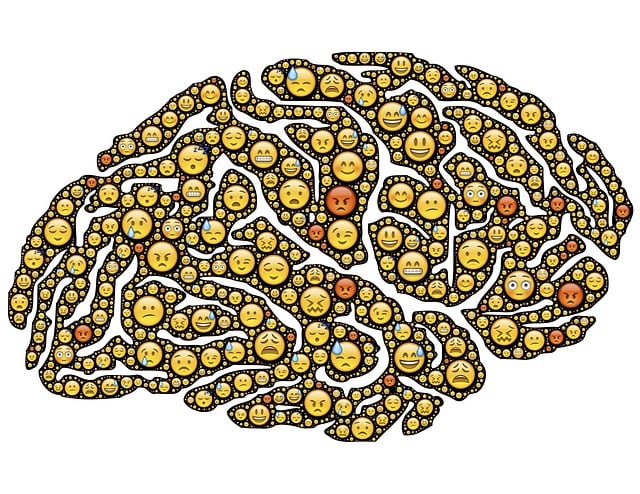Emotion regulation is a key component of recovering from drug abuse in Longmont, offering individuals tools to manage their emotional well-being through techniques like cognitive-behavioral therapy (CBT), mindfulness meditation, and stress management workshops. These evidence-based approaches, integrated into Longmont Drug Abuse-Substance Abuse Therapy, empower clients with healthier coping mechanisms, reduce impulsive behaviors, and foster resilience against relapse and emotional challenges, ultimately promoting long-term mental health improvements.
Emotion regulation techniques are powerful tools for individuals seeking recovery from drug abuse. This comprehensive guide explores the significance of emotion regulation in healing and its role in Longmont Drug Abuse-Substance Abuse Therapy. We delve into practical, evidence-based strategies that mental health professionals can teach patients to manage emotions effectively. By integrating these techniques, therapists can empower clients to navigate challenges, reduce cravings, and foster sustainable recovery in a supportive environment.
- Understanding Emotion Regulation and Its Significance in Recovery
- Practical Techniques for Effective Emotion Regulation Teaching
- Integrating Emotion Regulation Strategies into Longmont Drug Abuse-Substance Abuse Therapy
Understanding Emotion Regulation and Its Significance in Recovery

Emotion regulation is a crucial aspect of recovery from drug abuse and substance use disorders in Longmont. It involves understanding, managing, and responding to one’s emotions in healthy ways, which can significantly impact an individual’s mental health and overall well-being. By learning effective emotion regulation techniques, individuals can develop coping strategies that prevent relapse and promote long-term recovery. This process empowers them to navigate challenging situations without resorting to substance use as a means of escape or self-soothing.
In the context of Longmont Drug Abuse-Substance Abuse Therapy, mood management is a key focus. Teaching clients burnout prevention strategies for healthcare providers can be life-changing, especially in helping them avoid emotional exhaustion and maintain a positive outlook. These techniques not only benefit the recovery journey but also have practical applications in daily life, fostering resilience and improving overall mental health, even beyond the therapeutic setting.
Practical Techniques for Effective Emotion Regulation Teaching

Teaching effective emotion regulation skills is a powerful tool for individuals to navigate life’s challenges and promote overall well-being. In Longmont Drug Abuse-Substance Abuse Therapy settings, practitioners can employ various practical techniques to empower clients with healthier emotional coping mechanisms. One such method is incorporating Compassion Cultivation Practices; encouraging individuals to cultivate self-compassion can significantly enhance their ability to manage intense emotions constructively. By fostering a non-judgmental and understanding attitude towards oneself, clients can develop resilience and reduce the impact of stressful situations.
Additionally, providing Crisis Intervention Guidance equips individuals with immediate strategies to de-escalate overwhelming emotions during moments of crisis. This includes teaching relaxation techniques like deep breathing exercises, mindfulness practices, and cognitive reappraisal skills. Moreover, focusing on Resilience Building allows clients to develop a sense of personal strength and adaptability, enabling them to bounce back from challenging experiences and regulate their emotions over time. These evidence-based approaches collectively contribute to fostering emotional intelligence and resilience among individuals seeking Longmont Drug Abuse-Substance Abuse Therapy.
Integrating Emotion Regulation Strategies into Longmont Drug Abuse-Substance Abuse Therapy

Integrating emotion regulation strategies into Longmont Drug Abuse-Substance Abuse Therapy is a holistic approach to healing and recovery. These techniques empower individuals to manage intense emotions, reduce impulsive behaviors, and develop healthier coping mechanisms. By incorporating evidence-based practices such as cognitive-behavioral therapy (CBT), mindfulness meditation, and stress management workshops offered by the Stress Management Workshops Organization, therapists can provide comprehensive care tailored to each client’s unique needs.
Risk assessment for mental health professionals plays a crucial role in this process, ensuring that both the therapist and client are prepared to navigate potential emotional challenges. Mindfulness Meditation, for instance, has been shown to reduce anxiety and depression, enhancing overall well-being. Through these integrated strategies, Longmont Drug Abuse-Substance Abuse Therapy can offer transformative support, fostering resilience and a deeper understanding of one’s emotions in recovery.
Emotion regulation techniques are invaluable tools in the field of Longmont Drug Abuse-Substance Abuse Therapy, enabling individuals to navigate and manage their emotional experiences effectively. By integrating these strategies into therapy, practitioners can foster a deeper understanding of emotional well-being, enhancing the overall recovery process. The practical techniques outlined in this article provide a roadmap for educators to guide clients towards improved emotional resilience, which is essential for long-term success and a fulfilling life free from substance abuse.














